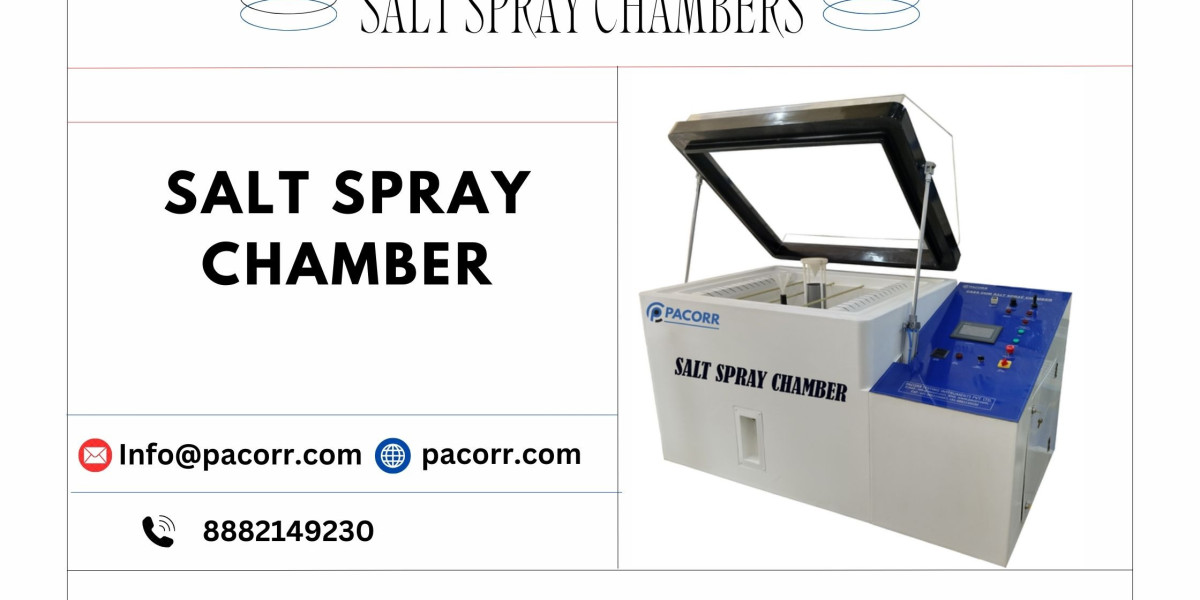The Salt Spray Chamber, a crucial piece of equipment for corrosion testing, plays an essential role in simulating real-world conditions that lead to corrosion. This article will explore the features, applications, and benefits of the Salt Spray Chamber and how it helps industries ensure product quality and durability.
What is a Salt Spray Chamber?
A Salt Spray Chamber is a specialized testing device used to simulate the corrosive effects of saltwater exposure on materials and coatings. The chamber operates by exposing materials to a controlled environment where they are subjected to a fine mist of saltwater. The purpose of this test is to evaluate the ability of a material or coating to withstand corrosion over time. It helps manufacturers assess the performance and longevity of their products under extreme conditions.
How Does a Salt Spray Chamber Work?
The Salt Spray Chamber operates by creating an environment that mimics the conditions that lead to corrosion, such as exposure to saltwater and humidity. It works by atomizing a Salt Spray Test Chamber solution, typically sodium chloride (NaCl), and dispersing it into the test chamber. The materials being tested are placed inside the chamber, where they are exposed to the mist for a specified period. The chamber's temperature, humidity, and salt concentration are all adjustable to simulate various environmental conditions, providing accurate and reliable results.
Types of Salt Spray Testing:
There are two primary types of salt spray testing:
- Neutral Salt Spray Test (NSS): This is the most common test, using a neutral pH salt solution (usually 5% NaCl). It simulates the corrosive effects of saltwater found in coastal environments or marine conditions.
- Acetic Acid Salt Spray Test (ASS): This test is more aggressive, using a salt solution with a lower pH (around 3.1) to simulate more corrosive environments, such as those found in industrial settings or areas with higher pollution levels.
Applications of the Salt Spray Chamber:
The Salt Spray Chamber is widely used across various industries for product testing and quality control. Some key applications include:
- Automotive Industry: To test the corrosion resistance of vehicle parts and coatings.
- Aerospace Industry: Ensures that components exposed to the elements, such as aircraft parts, can withstand corrosive conditions.
- Electronics Industry: For testing the durability of metal parts and coatings used in electronic devices.
- Construction and Infrastructure: Evaluates the corrosion resistance of materials used in building structures, such as steel and alloys.
Benefits of Using a Salt Spray Chamber:
- Accelerated Testing: The Salt Spray Chamber accelerates the process of corrosion, providing faster results than natural exposure, which can take months or even years.
- Standard Compliance: Using a Salt Spray Chamber allows manufacturers to meet industry standards for corrosion resistance, ensuring compliance with regulations such as ASTM B117 and ISO 9227.
- Quality Assurance: The chamber helps manufacturers identify weaknesses in their products' coatings or materials, enabling them to make necessary improvements before products hit the market.
- Cost-Effective: By testing materials in a controlled environment, manufacturers can reduce the costs associated with real-world testing, such as exposure to extreme weather conditions or transportation.
Conclusion:
The Salt Spray Chamber Price is an indispensable tool for manufacturers aiming to test and improve the corrosion resistance of their products. By simulating real-world conditions, it provides valuable insights into the durability and longevity of materials exposed to corrosive environments. Whether you are in the automotive, aerospace, electronics, or construction industry, investing in a Salt Spray Chamber can help you ensure that your products meet the highest standards of quality and performance. For reliable and accurate corrosion testing, Pacorr's Salt Spray Chamber is the perfect solution.
Contact Us:
· Email: Info@pacorr.com
· Phone: 8882149230
· Visit our website at www.pacorr.com for more details on our testing instruments.








